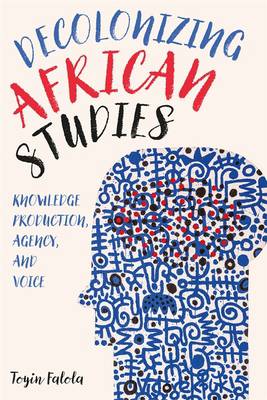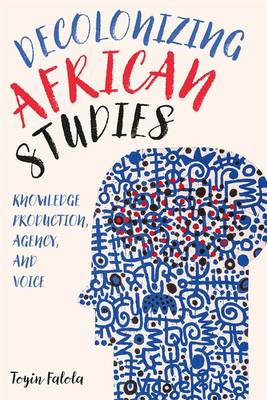
Bedankt voor het vertrouwen het afgelopen jaar! Om jou te bedanken bieden we GRATIS verzending (in België) aan op alles gedurende de hele maand januari.
- Afhalen na 1 uur in een winkel met voorraad
- In januari gratis thuislevering in België
- Ruim aanbod met 7 miljoen producten
Bedankt voor het vertrouwen het afgelopen jaar! Om jou te bedanken bieden we GRATIS verzending (in België) aan op alles gedurende de hele maand januari.
- Afhalen na 1 uur in een winkel met voorraad
- In januari gratis thuislevering in België
- Ruim aanbod met 7 miljoen producten
Zoeken
€ 249,95
+ 499 punten
Uitvoering
Omschrijving
Examines transformational moments and liberation movements in the decolonization of inherited Western academic traditions in Africa. This book explores how decolonization and decoloniality provide liberationist knowledge to question and replace the hegemony of Western knowledge systems imposed on Africa. It critically examines the silencing and exclusion of subalterns in global knowledge production and the far-reaching implications of this for pedagogy and policy. As global power is concentrated in the global north where Eurocentrism and white supremacy validate the monopoly of knowledge and its centrality and universality, African perspectives continue to be marginalized or excluded in research, creating the problem of misrepresentation of the continent. It is to this challenge that this book has responded&emdash;the urgent need to eliminate the vestiges of colonialism in the academy and research methodologies. Coloniality is seen not only as a historical phenomenon but also as an ethnocentric continuum, dominating all aspects of present life, especially monopolizing human epistemology, the threshold of human existence, and even development activities. This book provides a balanced overview of what a feasible decoloniality should be. It is all-inclusive, aggregating differing perspectives, including decolonial feminist and LGBTQ thought. It deploys a holistic approach that critiques the limitations to decoloniality, the impediments that culminated in the failure of the late 20th century struggle for decoloniality, and the problems associated with current African resistance to academic decoloniality. The book closes with a discussion of African futurism. Seen as the advanced stage of decoloniality, African futurism involves the application of "traditional" (indigenous) instruments of articulation and cohesion such as Afro-spirituality, myths, folklore, and indigenous techno-scientific innovations, deployed in their capacity to drive, harness, and actualize future possibilities.
Specificaties
Betrokkenen
- Auteur(s):
- Uitgeverij:
Inhoud
- Aantal bladzijden:
- 690
- Taal:
- Engels
- Reeks:
- Reeksnummer:
- nr. 93
Eigenschappen
- Productcode (EAN):
- 9781648250279
- Verschijningsdatum:
- 18/02/2022
- Uitvoering:
- Hardcover
- Formaat:
- Genaaid
- Afmetingen:
- 152 mm x 229 mm
- Gewicht:
- 1084 g

Alleen bij Standaard Boekhandel
+ 499 punten op je klantenkaart van Standaard Boekhandel
Beoordelingen
We publiceren alleen reviews die voldoen aan de voorwaarden voor reviews. Bekijk onze voorwaarden voor reviews.









